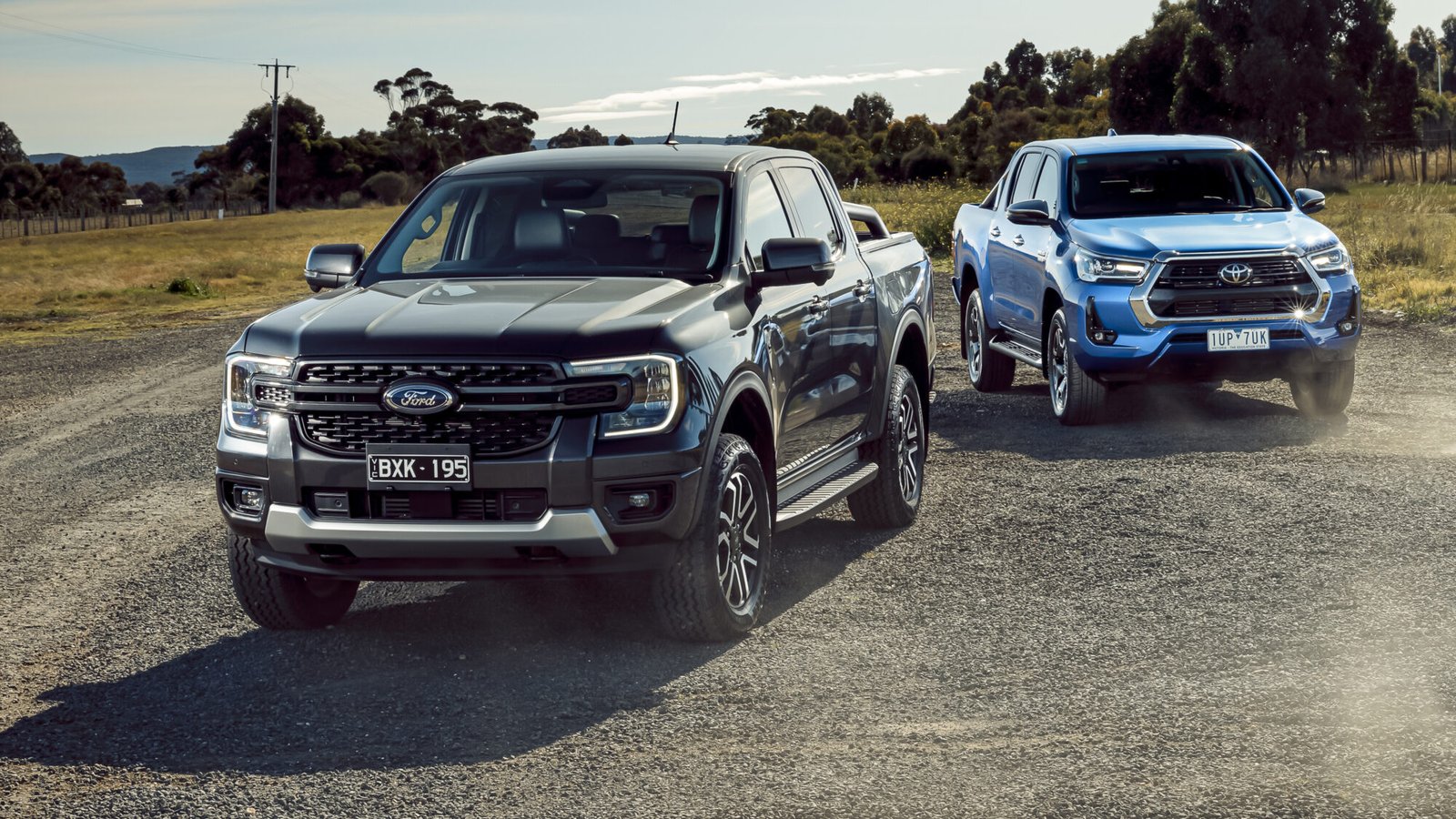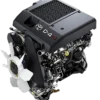Toyota 1HD-FTV vs Ford Ranger 3.2L Engine: A Comparative Analysis
Toyota 1HD-FTV vs Ford Ranger 3.2L Engine
When it comes to rugged, reliable diesel engines, both the Toyota 1HD-FTV and the Ford Ranger 3.2L stand out as popular choices among off-road enthusiasts and utility vehicle owners. Each engine has its strengths and weaknesses, making them suited for different applications and driving styles. In this comparative analysis, we will examine their specifications, performance, reliability, fuel efficiency, and overall user experience to help you make an informed decision. Toyota 1HD-FTV vs Ford Ranger 3.2L Engine
Overview of the Engines
Toyota 1HD-FTV
The Toyota 1HD-FTV is a 4.2-liter inline-six turbocharged diesel engine, renowned for its durability and power. Commonly found in the Toyota Land Cruiser and other heavy-duty applications, this engine is designed to handle demanding conditions and provide exceptional torque. Toyota 1HD-FTV vs Ford Ranger 3.2L Engine
- Displacement: 4.2 liters
- Configuration: Inline-six
- Power Output: Approximately 202 horsepower
- Torque: Around 430 Nm (317 lb-ft)
- Fuel System: Direct fuel injection with a turbocharger
- Applications: Toyota Land Cruiser, heavy-duty trucks
Ford Ranger 3.2L
The Ford Ranger 3.2L is a 3.2-liter five-cylinder turbocharged diesel engine. It has become popular for its balance of power and fuel efficiency, making it a favorite among those who need a versatile workhorse. Toyota 1HD-FTV vs Ford Ranger 3.2L Engine
- Displacement: 3.2 liters
- Configuration: Inline-five
- Power Output: Approximately 197 horsepower
- Torque: Around 470 Nm (346 lb-ft)
- Fuel System: Common rail direct injection with a turbocharger
- Applications: Ford Ranger, Ford Everest
Performance Comparison
Power and Torque
When comparing power and torque, the Ford Ranger’s engine slightly edges out the Toyota 1HD-FTV in terms of torque output. The Ranger’s 3.2L engine produces around 470 Nm of torque, making it particularly effective for towing and hauling heavy loads. In contrast, the 1HD-FTV offers a respectable 430 Nm, which is still impressive but slightly lower than the Ford. Toyota 1HD-FTV vs Ford Ranger 3.2L Engine
In terms of horsepower, both engines are closely matched, with the 1HD-FTV producing about 202 horsepower compared to the Ranger’s 197 horsepower. This means that while the Toyota may have a slight edge in horsepower, the Ford compensates with higher torque. Toyota 1HD-FTV vs Ford Ranger 3.2L Engine
Acceleration and Responsiveness
The 1HD-FTV is known for its smooth power delivery, especially at low RPMs, making it an excellent choice for off-road driving. Its torque comes in at lower engine speeds, which is beneficial for navigating rough terrains. The Ford Ranger, with its turbocharged setup, also provides good responsiveness but may feel a bit peaky at higher RPMs. Toyota 1HD-FTV vs Ford Ranger 3.2L Engine
Off-Road Capability
Both engines are designed for rugged conditions, but the 1HD-FTV is particularly renowned for its off-road prowess, largely due to its design and the vehicles it is paired with, like the Land Cruiser. The combination of power, torque, and a robust drivetrain makes it a favorite for serious off-road enthusiasts. Toyota 1HD-FTV vs Ford Ranger 3.2L Engine
The Ford Ranger, while very capable, tends to be more of a dual-purpose vehicle, excelling in both on-road and off-road environments but not quite matching the specialized off-road performance of the Land Cruiser. Toyota 1HD-FTV vs Ford Ranger 3.2L Engine
Reliability
Toyota 1HD-FTV
The Toyota 1HD-FTV engine is celebrated for its reliability and longevity. Owners often report that with proper maintenance, it can exceed 300,000 kilometers (approximately 186,000 miles) without major issues. The robust construction, high-quality materials, and Toyota’s reputation for dependability contribute to its status as a reliable workhorse. Toyota 1HD-FTV vs Ford Ranger 3.2L Engine
Ford Ranger 3.2L
The Ford Ranger 3.2L engine is generally reliable, but it has had a few reported issues, particularly related to the diesel particulate filter (DPF) and some instances of injector problems. While many owners have had positive experiences, it’s worth noting that some users have reported that maintenance can be a bit more involved, especially concerning the DPF. Toyota 1HD-FTV vs Ford Ranger 3.2L Engine
Fuel Efficiency
Toyota 1HD-FTV
The 1HD-FTV engine delivers fuel consumption figures in the range of 10-12 liters per 100 kilometers (around 23-28 miles per gallon) under normal driving conditions. While not the most fuel-efficient option, it balances power and consumption well for its size and capability.
Ford Ranger 3.2L
The Ford Ranger 3.2L tends to offer slightly better fuel efficiency, averaging around 9-11 liters per 100 kilometers (approximately 26-35 miles per gallon). The Ranger’s lighter weight and more advanced fuel management system contribute to its fuel economy advantages, especially during highway driving.
User Experience
Comfort and Driving Experience
Both engines provide a comfortable driving experience, but the vehicles they are found in differ in terms of interior comfort and technology features. The Toyota Land Cruiser offers a premium ride with advanced off-road features and a well-appointed interior, while the Ford Ranger focuses on practicality and versatility, with a spacious cabin and modern infotainment options. Toyota 1HD-FTV vs Ford Ranger 3.2L Engine
Resale Value
Toyota vehicles, particularly those with the 1HD-FTV engine, tend to retain their value well, thanks to their reliability and reputation. The Land Cruiser is often considered a long-term investment, and its resale values reflect that. The Ford Ranger also holds its value relatively well, especially in markets where utility vehicles are in demand.
Maintenance Considerations
Toyota 1HD-FTV
The maintenance for the 1HD-FTV is generally straightforward, with regular oil changes, fuel filter replacements, and coolant checks being crucial. Toyota’s extensive dealer network makes finding parts and service convenient, and many owners take pride in performing their own maintenance. Toyota 1HD-FTV vs Ford Ranger 3.2L Engine
Ford Ranger 3.2L
The Ranger’s maintenance may require more attention to specific components like the DPF and injectors. While routine maintenance is similar, some owners report that servicing these components can be more complex. However, Ford’s service network is also extensive, providing ample support for maintenance and repairs.
Conclusion
In the battle between the Toyota 1HD-FTV and the Ford Ranger 3.2L engine, each has its distinct advantages and suitability based on user needs. The 1HD-FTV excels in durability, off-road capability, and reliability, making it an ideal choice for serious off-road enthusiasts and those requiring heavy-duty performance. On the other hand, the Ford Ranger 3.2L offers a balanced approach with slightly better fuel efficiency and a versatile setup for both work and everyday driving. Toyota 1HD-FTV vs Ford Ranger 3.2L Engine
Ultimately, the choice between the two will depend on your specific requirements, whether you prioritize ruggedness and reliability or a blend of efficiency and versatility. Both engines represent solid choices in their respective categories, ensuring that you’ll have a dependable powerplant for your adventures or work needs.
Installation Guide for the Yanmar 8LV370 Inboard Diesel Engine
Customer Reviews and Experiences with the Yanmar 8LV370 Inboard Diesel Engine
Best Applications for the Yanmar 8LV370 Inboard Diesel Engine
Ultimate Guide to Upgrading the Chevy LS3 6.2L V8 to 700+ HP
Unveiling the Power and Precision of Subaru Engines: A Comprehensive Guide








